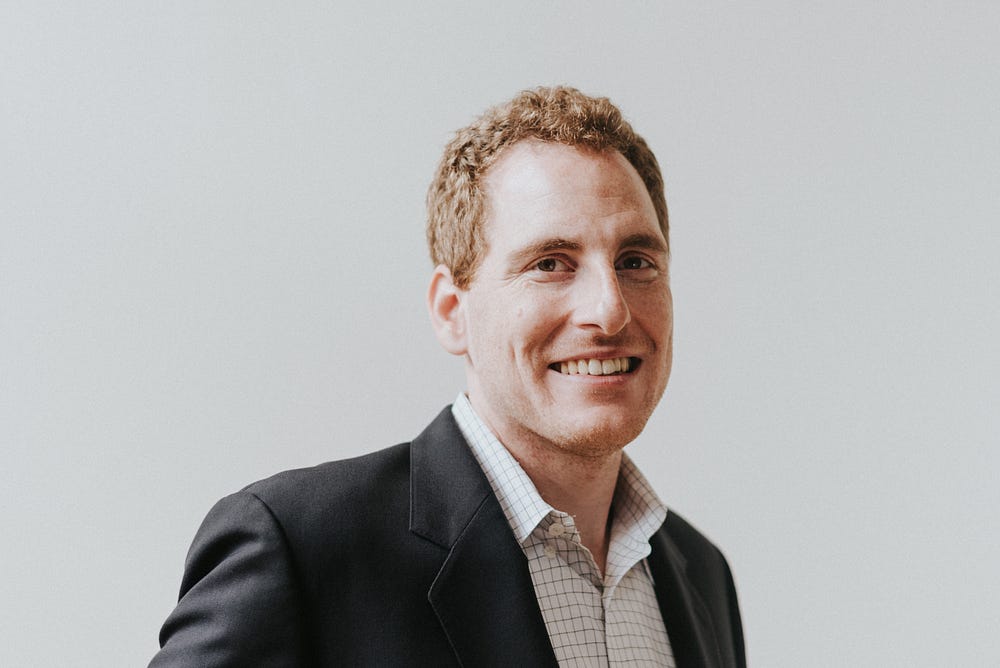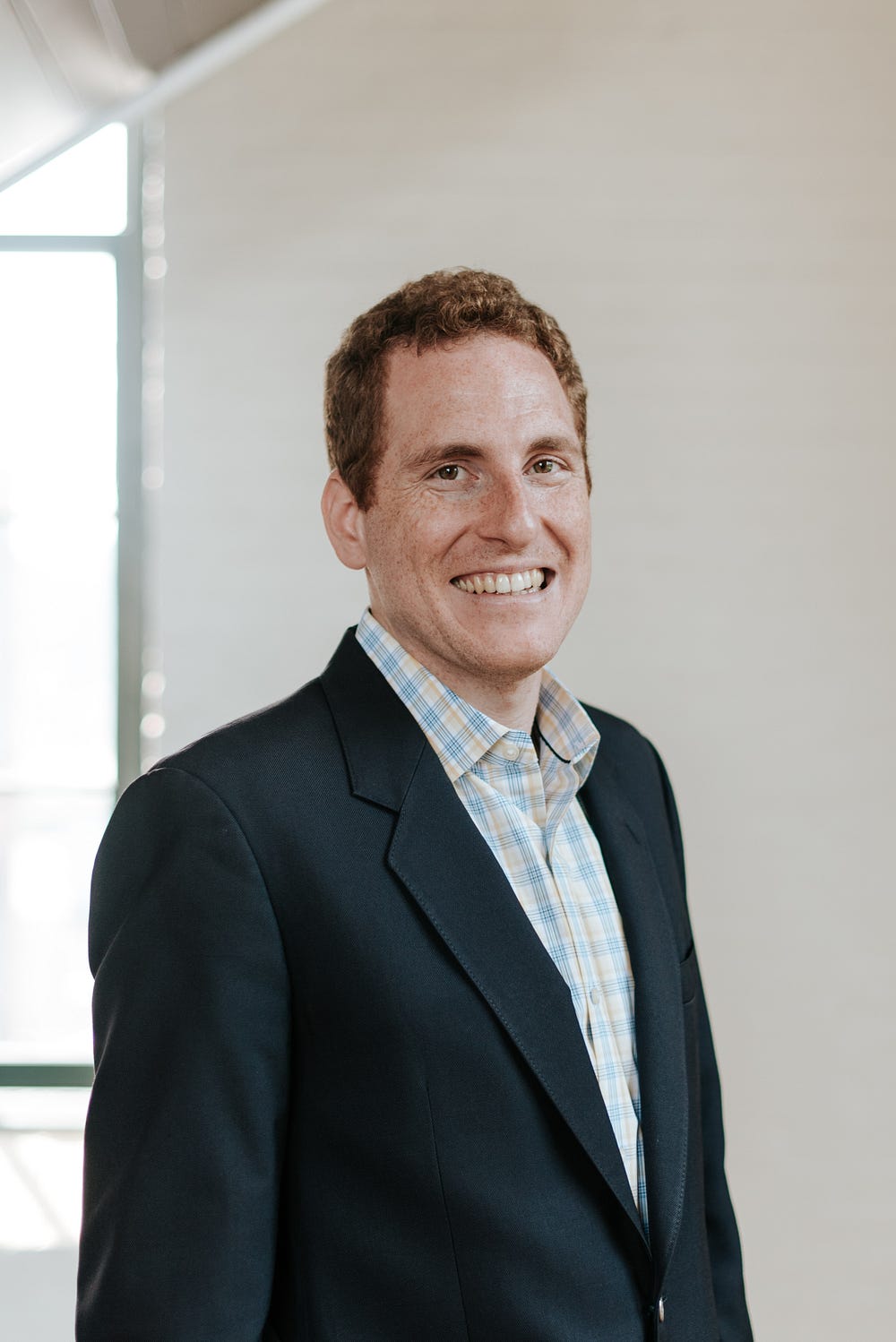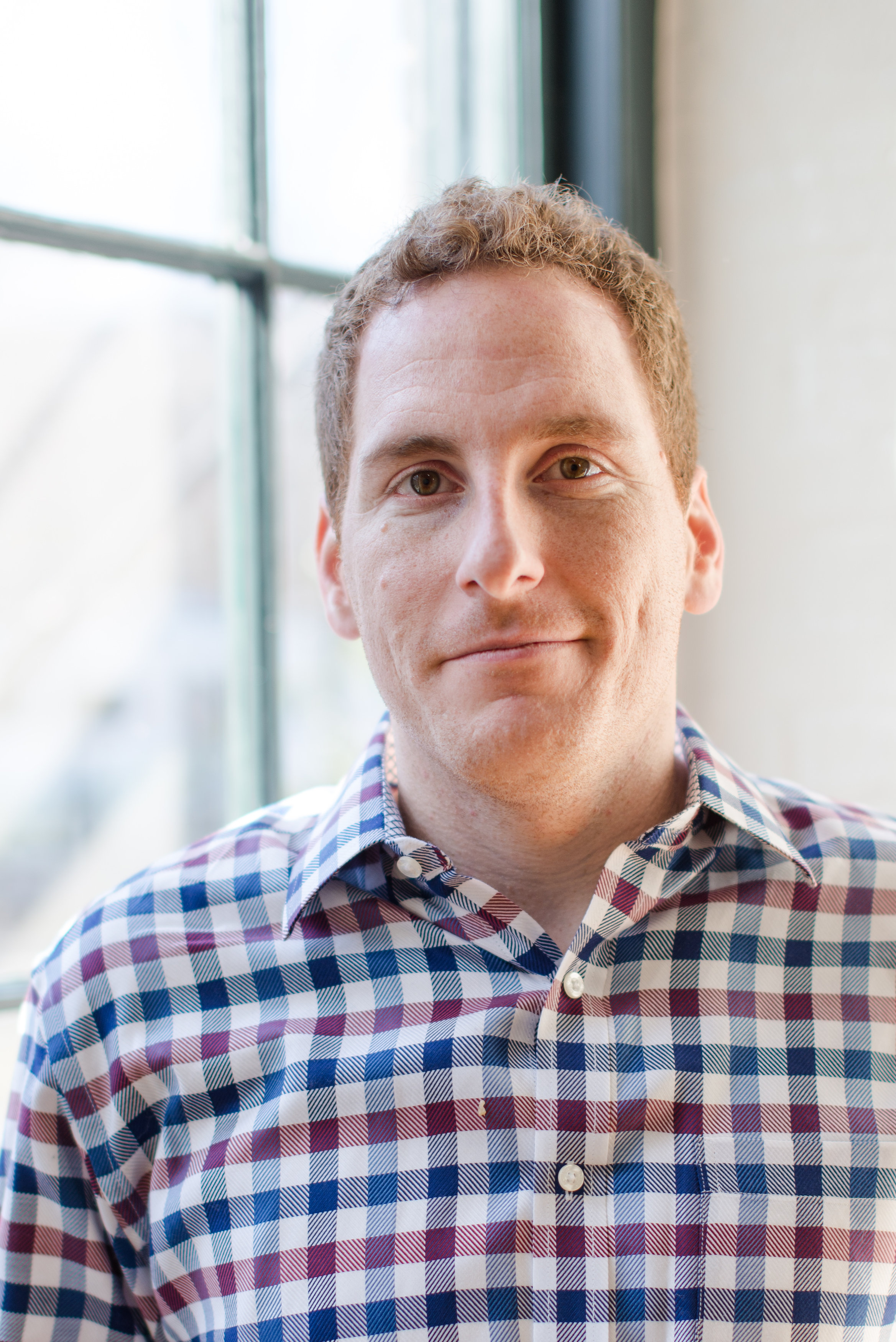When I think of slowing down I think of my golf swing. If I take my time and try to hit the ball nice and easy, it goes further and straighter. It’s when I try to swing fast and hit it hard that it hooks, slices, or turns into an outright shank. The same goes for my work, time with friends, everything.
As a part of my series about “How to Slow Down To Do More” I had the pleasure to interview Andres Lares, Managing Partner, Shapiro Negotiations Institute (SNI). Andres is responsible for the day-to-day operations of SNI, a world-leading negotiation training company. He also continues to serve as a negotiation trainer and coach with an emphasis on sports, while leading the organization’s development of advanced interactive negotiation simulations, such as the application of virtual-reality. Andres’ client work includes organizations such as PwC, Boeing, Novo Nordisk, Ryland Homes, and the San Antonio Spurs.
In addition to his work for SNI, Andres has been a guest speaker at conferences and universities across the country on multiple topics, and he currently teaches a highly regarded course, Sports Negotiation, at Johns Hopkins University. He also recently completed the prestigious Bowe Fellows program, a yearlong global business leadership program within the World Trade Center Institute in Baltimore.
Prior to joining SNI, Andres completed a Master of Business Administration and Master of Sports Administration at Ohio University. He also worked for several professional sports teams and consulting firms.
Thank you so much for joining us! Can you tell us the “backstory” about what brought you to this specific career path?
I first bumped into Ron Shapiro a little over ten years ago after receiving the “Case Cup” award for my graduate work at the National Sports Forum. Ron, the founder of Shapiro Negotiations Institute, had been a role model of mine for years, ever since I’d picked up his book The Power of Nice. Waking off the stage that day with my award and bumping into him was serendipitous, and we hit if off right away.
Ron liked my experience (working for the Philadelphia Eagles, long-time background in consulting, two graduate degrees, and more) and just so happened to be looking for some help with all the sports advisory work he was doing. I’ve always been fascinated by maximizing gains for individuals or organizations and wanted to learn from him, so it was a great fit!
One thing led to another, and next thing I knew I had moved to Baltimore to join his team at SNI. After about nine years together, Ron began thinking about taking a step back from the frontlines of the business to tackle a new opportunity — and there was no shortage of offers on the table. Those who know Ron won’t be surprised to discover that he was less focused on the money and more focused on leaving the firm in good hands; I’m very proud to say that after evaluating all his options, he felt it was in the best hands with my partners, Chip Tames, Jeff Cochran and me. We formally took over in July of 2017, with me as the Managing Partner.
According to a 2006 Pew Research Report report, 26% of women and 21% of men feel that they are “always rushed”. Has it always been this way? Can you give a few reasons regarding what you think causes this prevalent feeling of being rushed?
I don’t believe it has always been this way. It feels like technology has played a big role in this. There is a shift in mindset — you don’t need to go back hundreds of years, even just 40 years ago the world was so different. Cell phones didn’t exist so people generally did not work and were not reachable once they left their place of work. They didn’t have internet in their homes, they didn’t have the same amount of distractions, etc. All of this has made us want to squeeze more in during a day and that pressure has us rushing, not just in our professional lives but in our personal lives.
Based on your experience or research can you explain why being rushed can harm our productivity, health, and happiness?
I think we can all think of times when we are rush and as a result are stressed. Whether we are late to a meeting and trying to make up for lost time, or talking to someone and they say “I only have 5 minutes.” That pressure stresses us, which creates a physiological reaction. This occurring constantly wears you down. This is one of the reasons I think people change jobs more than ever — they get burned out, the pace is too fast, and there isn’t enough time to take a breath, enjoy what you are doing, etc. I think of it this way — when we make a quick sandwich or pick up something on to go we are eating for fuel, but if we go to a nice restaurant we slow down, enjoy the ambiance, the service, the food, the company, and as a result, the experience is that much more satisfying. Our mindset in of itself is part of the reason we enjoy it more. Not to say the food isn’t also better, but our mindset makes a dramatic difference on our happiness.
On the flip side, can you give examples of how we can do more, and how our lives would improve if we could slow down?
When I think of slowing down I think of my golf swing. If I take my time and try to hit the ball nice and easy, it goes further and straighter. It’s when I try to swing fast and hit it hard that it hooks, slices, or turns into an outright shank. The same goes for my work, time with friends, everything. For example, I now try to spend more and richer time with a smaller number of friends. When I was younger, I enjoyed parties because I could connect with a lot of my friends, “see everyone!”. Now I host one friend or a couple for dinner, we spend more quality time. Slow down. Eliminate distractions. The time is so much richer this way. I do the same in my business. If I’m meeting with someone, I want them to know they are important. We go for lunch, put our phones away — are fully present.

We all live in a world with many deadlines and incessant demands for our time and attention. That inevitably makes us feel rushed. Can you share with our readers 6 strategies that you use to “slow down to do more”? Can you please give a story or example for each?
- Take a moment and ask myself, “when does this really need to be done by?”
- Don’t let others hurry me. If they say “I only have 5 minutes. I now respond with, “If you only have 5 minutes, let’s reschedule for when you have more time.” More often than not, then end up having more than 5 minutes.
- Eliminate distractions and multitasking. I don’t look at my phone or computer when I’m on a conference call — I take handwritten notes for that reason. I don’t face a TV when I’m having dinner with someone. I want to stay focused and present, for me, and so that the other parties feel it.
- Take a break. I do this by putting on headphones with loud electronic music, going to the gym at lunch time to get my mind off things, etc. Mini disconnection to refresh the brain and mind.
- Be willing to revisit something. If I feel a time pressure to get something done, I work on it, put it down, and come back to it in a few minutes. Unless there is a deadline that is really just moments away, when I return to it, I almost always have better ideas.
- Don’t over schedule your day. Not only do I then feel rushed the entire day, I feel unaccomplished at the end of the day because I couldn’t get through it all.
How do you define “mindfulness”? Can you give an example or story?
I feel mindfulness is similar to being present. It’s as simple as- are you really present at a meeting or thinking about your next meeting? Are you aware that you are tired? Can you focus on one thing at a time?
I’ve taken a few classes on mindfulness to better understand it. I think the biggest takeaway for me has always been the awareness. The ability to take a step back and think to yourself, I’m not fully present at this meeting. I’m thinking about my presentation tomorrow and can’t really focus on my desk. That allows you to do something about, which with practice gets easier, but even just the awareness piece has helped me a great deal.
Can you give examples of how people can integrate mindfulness into their everyday lives?
Quite a few successful people, especially in the start up and venture capital world meditate every day. I think this is a great way to clear your mind and be in the moment. I do it by listening to music. Our founder used to close his door, relax, and take a short nap to slow things down and refresh.
Do you have any mindfulness tools that you find most helpful at work?
I have started to use Headspace. A lot of our clients have been using it for a while and rave about it so I’ve started to give it a try. For me, listening to electronic music (with a certain beats per minute and positive style) allows me to either disconnect or focus on a task. Playing squash or going for a run at lunch also does that for me. When I return, I feel renewed and refreshed. Tired physically but feeling a huge boost to my brain.

What are your favorite books, podcasts, or resources that inspire you to use mindfulness tools or practices
I just started reading 10% Happier by Dan Harris. It was recommended by several people and been great so far. Mindfulness app. Music at work. Etc.
Can you please give us your favorite “Life Lesson Quote”? Can you share how that was relevant to you in your life?
Make every moment count. For many people this sounds like you should just do everything you want to do and not hold back. For me it’s all about taking the time to actually enjoy what you are doing. So, it is about picking the things you like to do, finding a job you are passionate about, etc. but then actually taking the time to enjoy it and not take it for granted. I think about it every day when I get to the office — I love what I do and remind myself to enjoy it. And then when I go home — I’m excited to spend time with my two young kids and my wife.
You are a person of great influence. If you could inspire a movement that would bring the most amount of good to the most amount of people, what would that be? You never know what your idea can trigger. 🙂
I was asked this recently so I’ve been thinking about it for a while-
Taking a moment every day to do something for someone else. We tried something at our company a few years ago where everyone received $20 to give away in any way they wanted. My wife and I decided that during our drive from my family to hers on Christmas Day, we would use it to pay for people’s bus fare. We are typically in Toronto over the holidays, so December 25th is often cold and snowy. I have volunteered and donated before, but until that experience, I never realized how immediately satisfying it is to do something for someone else. Pulling over in 25-degree weather when it’s snowing hard and seeing the face of a mom when we paid for her, who we guessed was her elderly mother, and two teenage kids was priceless. It’s even more impactful because at first, she had doubt or even a slight bit of fear about strangers pulling over by a bus stop as she waited for the bus, what looked like a long time. An experience like that can be addictive and countless studies have shown that those experiences make YOU happier. They also give a little boost to the people around you — even a stranger who just sees you doing something kind for someone else. It makes them feel good, like they want to do something nice, too. It ripples. So, do it every day and we would have a better world. Pay for the coffee of the person behind you. Compliment a stranger if you like their attire or hairdo. Offer the other person to go before you when you both get to a door at the same time, and hold it for them, regardless of gender and age. Give half of your sandwich to a homeless person. Imagine everyone doing this?
Thank you so much for these insights! This was so inspiring!
About the Author:
After 15 years working in Commercial Real Estate in New York City, Ashley Graber changed the coast she lived on and the direction of her life from Real Estate to the worlds of Psychology and Meditation & Mindfulness. Ashley came to these practices after getting sober and in the decade plus since, she now runs a busy mindfulness based psychotherapy practice at Yale Street Therapy in Santa Monica, CA where she see adults and children and speaks on the benefits of meditation and mindfulness practices.
Ashley is an Owner and Director of Curriculum for the next generation meditation app & mindfulness company ‘Evenflow’ and launched the company’s one to one online mindfulness mentoring program. Ashley also educates teachers and administrators in schools and presents in businesses across Santa Monica and Los Angeles.
Ashley was trained in Meditation and Mindfulness practices by prominent teachers; Elisha Goldstein, Richard Burr and Guiding teacher at Against the Stream Boston, Chris Crotty. Her Mindfulness Based Stress Reduction (MBSR) certification was done through The Center for Mindfulness at UC San Diego. Additionally, Ashley is trained by Mindful Schools to teach Meditation and Mindfulness practices to children and families. Ashley’s unique combination of psychotherapy, trauma reprocessing and meditation and mindfulness practices make her a sought after therapist and mindfulness educator and speaker. Her passion for the benefits of mindfulness practices as well as her enthusiasm for helping young kids and adults is the drive to teach these very necessary, life long skills and why she wrote and runs the Mindfulness for Families program at The Center for Mindful Living. This is where she teaches groups of families with children ages 6–12. Ashley was featured on Good Morning LaLa Land, presented on Resilience at the renowned Wisdom. 2.0 Mindfulness & Technology conference, and presented at the TED Woman conference offering an in-depth look at the profound psychological and physiological consequences of chronic stress, and how meditation and mindfulness practices can alleviate these effects.


